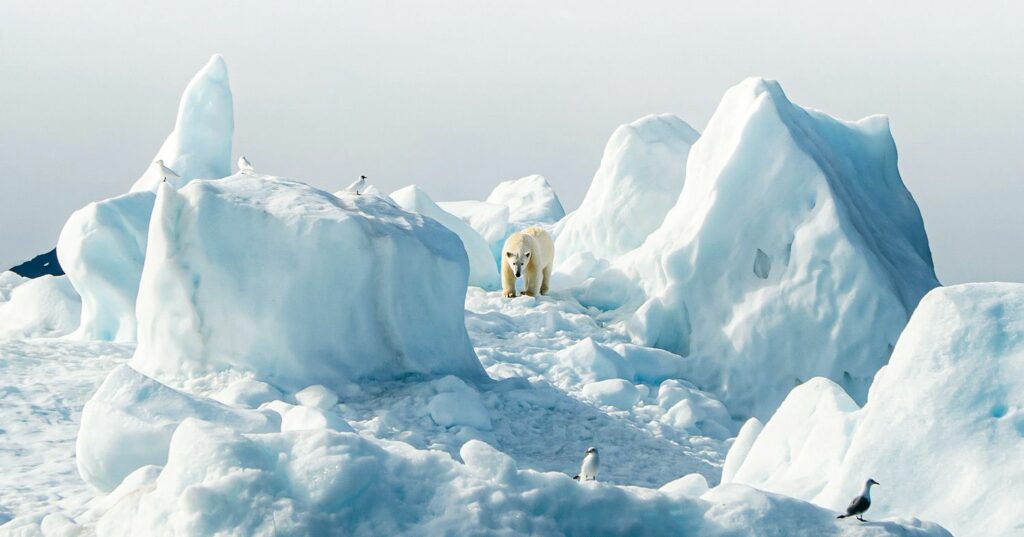Last week, the UN’s Intergovernmental Panel on Climate Change (IPCC) shocked the world with a landmark report on the climate crisis. As you’ve probably read by now — the findings of the report, described by UN Secretary-General António Guterres as “code red for humanity” — were not overly optimistic. Humans, it confirmed, have harmed the planet to an extent that is, in some aspects, irreversible.
But while the IPCC’s findings aimed to shock, the panel is not aiming to paralyze us with fear. (But if that was your first reaction, we feel you. And you can find our guide to coping with climate anxiety here.) Actually, the point is the opposite: to galvanize us into action. Among the doom and gloom of rising sea levels, drought, and extreme heat, there were some points made for cautious optimism. It’s not too late to change course and avoid total catastrophe, but governments must do their part. And they must do it fast.
“We can’t undo the mistakes of the past,” wrote UN Environment Executive Director Inger Anderson in a public letter addressed to the scientists of the IPCC. “But this generation of political and business leaders, this generation of conscious citizens, can make things right.”
If you’re still processing what’s been going on or struggling to digest the report in its entirety (again, we feel you), here are our 5 key takeaways.
5 takeaways from the UN climate report we can’t stop thinking about
There’s no getting away from it: climate change is human-caused
Since the beginning of industrialization, humans (predominantly those in Western countries) have pumped gases into the air at such a rate that we have changed the chemistry of the atmosphere, creating a greenhouse effect. (Like a regular glass greenhouse, these gases, which include carbon dioxide and methane, trap heat.)
But if there was any shred of doubt left that the changing climate was caused by this human activity, the IPCC’s report obliterated it. It states: “It is unequivocal that human influence has warmed the atmosphere, oceans, and land.”
Some of the damage is irreversible
The report confirmed what scientists have known for some time: when it comes to sea levels, arctic ice melting, and warming oceans, we have passed the point of no return. There is no way we can go back to how things were before we started warming the planet, but we can mitigate the impact by limiting temperature rises to 1.5C.
Per the Guardian, Ed Hawkins, one of the IPCC’s lead authors, stated: “We are already experiencing climate change, including more frequent and extreme weather events, and for many of these impacts there is no going back.” Another lead author, Joeri Rogelj, added: “This report shows the closer we can keep to 1.5C, the more desirable the climate we will be living in, and it shows we can stay within 1.5C but only just – only if we cut emissions in the next decade.”
Cutting methane is vital when it comes to limiting temperature increase
The report also confirmed that as well as CO2, methane is warming the planet rapidly. In fact, the IPCC noted that currently, roughly 0.3C of the world’s 1.1C warming is due to methane.
Animal agriculture emits significant amounts of the gas. (According to the Food and Agriculture Organization of the UN, cattle contribute 5.0 gigatonnes of CO2-equivalent each year, representing 62 percent of the livestock sector’s emissions.) And the energy sector, which includes coal, oil, and gas, is also a huge contributor of methane emissions.
Per the BBC, Fred Krupp of the U.S Environmental Defense Fund stated: “The report quashes any remaining debate about the urgent need to slash methane pollution, especially from sectors such as oil and gas, where the available reductions are fastest and cheapest. When it comes to our overheating planet, every fraction of a degree matters – and there is no faster, more achievable way to slow the rate of warming than by cutting human-caused methane emissions.”
We can avoid total catastrophe, but we need to act fast
Let’s be honest, most of the report’s findings are scary. But the IPCC is also desperate to drive home that we still have time to act. And we know what the solutions are. The scientists are confident that reaching net-zero emissions will limit global warming.
“The thought before was that we could get increasing temperatures even after net zero,” said co-author Professor Piers Forster. “But we now expect nature to be kind to us and if we are able to achieve net-zero, we hopefully won’t get any further temperature increase; and if we are able to achieve net-zero greenhouse gases, we should eventually be able to reverse some of that temperature increase and get some cooling.”
Politicians must be held accountable
The release of the IPCC’s report comes only a few months before COP26, a major climate summit in Glasgow, Scotland. Guterres is calling for governments and major companies to make this summit count.
He stated on the day of the report’s release: “If we combine forces now, we can avert climate catastrophe. But, as today’s report makes clear, there is no time for delay and no room for excuses. I count on government leaders and all stakeholders to ensure COP26 is a success.”
Greenpeace recently held Shell accountable for its climate change contributions through a lawsuit, and it’s ready to do the same again for more governments and companies if necessary.
“We’re not going to let this report be shelved by further inaction. Instead, we’ll be taking it with us to the courts,” Kaisa Kosonen, Greenpeace Nordi’s senior political adviser told the BBC. “By strengthening the scientific evidence between human emissions and extreme weather, the IPCC has provided new, powerful means for everyone everywhere to hold the fossil fuel industry and governments directly responsible for the climate emergency.”


